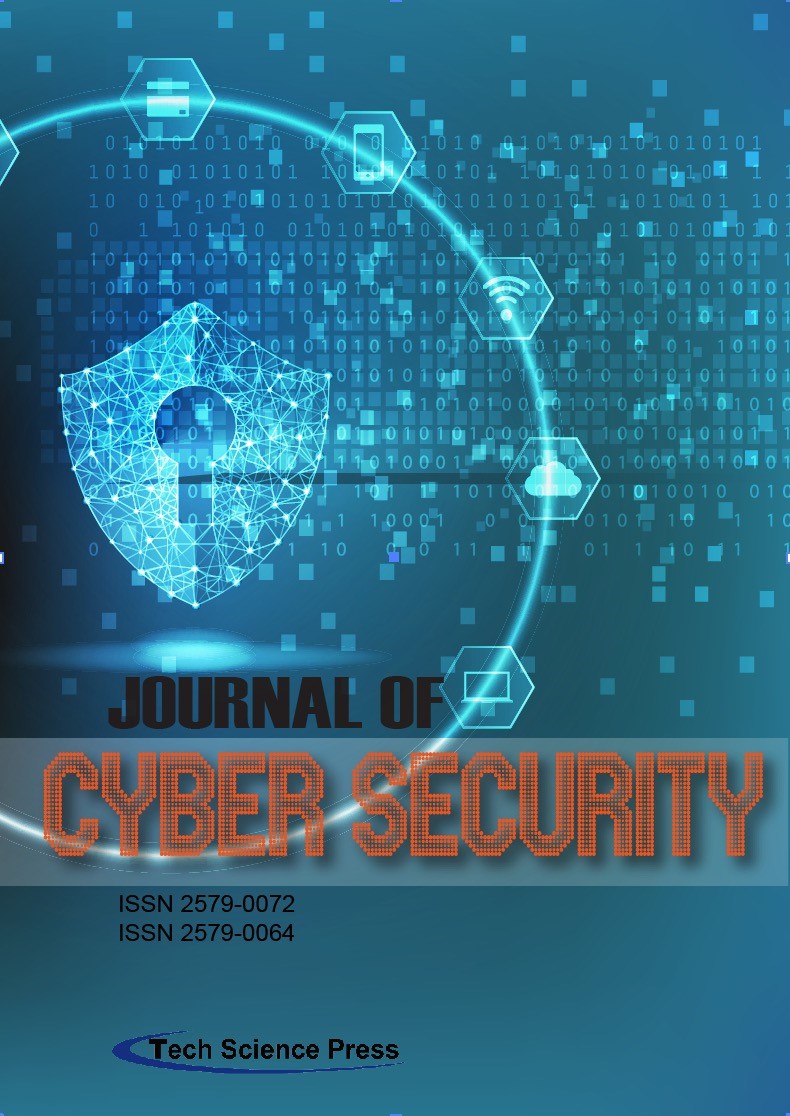
Cybersecurity is the basis of information dissemination in the internet age.The Journal of Cyber Security focuses on all aspects of sciences, technologies, and applications relating to hardware security, software security and system security.
 Open Access
Open Access
ARTICLE
Journal of Cyber Security, Vol.8, pp. 93-109, 2026, DOI:10.32604/jcs.2026.074197 - 20 January 2026
Abstract Nowadays, cyberattacks are considered a significant threat not only to the reputation of organizations through the theft of customers’ data or reducing operational throughput, but also to their data ownership and the safety and security of their operations. In recent decades, machine learning techniques have been widely employed in cybersecurity research to detect various types of cyberattacks. In the domain of cybersecurity data, and especially in Trojan detection datasets, it is common for datasets to record multiple statistical measures for a single concept. We referred to them as SWMF features in this paper, which include… More >
 Open Access
Open Access
REVIEW
Journal of Cyber Security, Vol.8, pp. 33-92, 2026, DOI:10.32604/jcs.2026.074265 - 20 January 2026
Abstract The rapid growth of digital payment systems and remote financial services has led to a significant increase in Card-Not-Present (CNP) fraud, which is now the primary source of card-related losses worldwide. Traditional rule-based fraud detection methods are becoming insufficient due to several challenges, including data imbalance, concept drift, privacy concerns, and limited interpretability. In response to these issues, a systematic review of twenty-four CNP fraud detection frameworks developed between 2014 and 2025 was conducted. This review aimed to identify the technologies, strategies, and design considerations necessary for adaptive solutions that align with evolving regulatory standards.… More >
 Open Access
Open Access
ARTICLE
Journal of Cyber Security, Vol.8, pp. 1-31, 2026, DOI:10.32604/jcs.2026.073923 - 07 January 2026
Abstract Federated learning (FL) enables collaborative model training across decentralized datasets, thus maintaining the privacy of training data. However, FL remains vulnerable to malicious actors, posing significant risks in privacy-sensitive domains like healthcare. Previous machine learning trust frameworks, while promising, often rely on resource-intensive blockchain ledgers, introducing computational overhead and metadata leakage risks. To address these limitations, this study presents a novel Decentralized Identity (DID) framework for mutual authentication that establishes verifiable trust among participants in FL without dependence on centralized authorities or high-cost blockchain ledgers. The proposed system leverages Decentralized Identifiers (DIDs) and Verifiable Credentials… More >